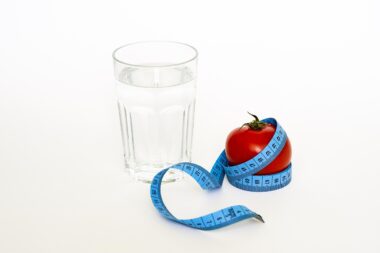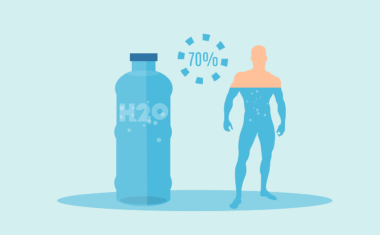Hydration Questions Answered: Pregnant Athletes Edition
Pregnant athletes often have specific hydration needs that change over time. Understanding these requirements is crucial for maintaining health and optimizing performance. During pregnancy, fluid requirements increase significantly to support fetal development. It’s essential to drink plenty of water and other fluids to ensure you remain hydrated. Also, factors such as climate, exercise intensity, and duration affect your hydration needs. Pregnant athletes should include electrolyte drinks that provide sodium and potassium to help maintain fluid balance during exercise. Always monitor your body for signs of dehydration, which can include dry mouth, fatigue, and dizziness. Remember the mantra: drink before, during, and after activities. Additionally, having a hydration schedule can be beneficial, especially on intense workout days. Lastly, consulting with healthcare professionals will offer personalized hydration strategies tailored to individual needs. This ensures that both you and your baby are healthy. Maintaining optimal hydration can contribute to overall performance and well-being during pregnancy. Therefore, stay aware of the signs of dehydration and be proactive in managing your fluid intake daily, focusing on both quantity and quality of fluids consumed.
Why Hydration is Critical for Pregnant Athletes
Hydration plays a pivotal role in maintaining health, especially for pregnant athletes. Adequate water intake safeguards not just physical performance but overall well-being during pregnancy. Pregnant women typically require approximately 10 additional cups of fluids per day, compared to non-pregnant peers. This increase is vital to support fetal growth and compensate for fluid loss during exercise. Moreover, water helps in nutrient transportation to the fetus while also facilitating waste elimination from both the mother and baby. Hydration also assists in preventing common pregnancy-related issues such as constipation and urinary tract infections. These conditions may significantly impact an athlete’s training routine and performance. Furthermore, staying hydrated may reduce the risk of preterm labor, a concern for many pregnant women engaged in intense physical activities. It is crucial to be aware of how physical activity increases fluid needs due to perspiration and breathing. Seeking professional guidance on adequate hydration strategies can lead to better outcomes during pregnancy. Knowledge of personal hydration requirements fosters a successful and enjoyable experience for both pregnant athletes and their babies.
Many pregnant athletes wonder how much water they should consume daily to stay hydrated. While the general guideline suggests drinking at least eight 8-ounce glasses of water a day, this quantity must be adjusted according to individual needs. Athletes involved in intense workouts must assess their fluid loss during exercise and replenish accordingly. Using thirst as a cue is a common method; however, relying solely on thirst may not suffice, especially during pregnancy. Keeping track of your fluid intake can ensure you meet hydration goals consistently. Tools like water-tracking apps or marked water bottles can be helpful in achieving daily intake targets. Furthermore, remember to make hydration a routine part of your practice before and after exercises. Instead of waiting until you feel thirsty, aim to consume fluids regularly throughout the day. Offering tips on drinking flavored water or incorporating hydrating fruits and vegetables further enhances daily water intake. Research shows well-hydrated athletes tend to experience better focus and performance. Hence, ensure that drinking fluids becomes integral to your daily wellness habits as you navigate through pregnancy.
Signs of Dehydration in Pregnant Athletes
Recognizing the signs of dehydration is crucial for pregnant athletes engaged in physical activities. Knowing these symptoms will allow immediate intervention and prevent complications. Common signs include a dry mouth, fatigue, increased heart rate, and dark urine. Additionally, pregnant women may experience dizziness or light-headedness, particularly during or after workouts. Feeling overheated during exercise can indicate inadequate hydration levels, leading to potential risks for both you and your baby. It’s important to pay attention to your body and make adjustments whenever these signs manifest. Carry water bottles during workouts to ensure you can conveniently drink fluids when necessary. Another useful tactic is to consider pre-hydrating before exercises. Monitoring your body weight before and after workouts can also indicate how much fluid you lose and subsequently need to replenish. Keep an eye on systemic changes, as these can reflect inadequate hydration levels as well. Proactively managing hydration helps improve exercise efficiency and promotes overall health. Taking dehydration seriously protects mother and child, fostering a supportive environment during the process of pregnancy and active living.
When selecting the best hydration sources for pregnant athletes, choosing quality options matters. Water should be the primary fluid of choice, given its role in providing essential hydration without added sugars or calories. However, considering electrolyte drinks is vital, particularly after strenuous workouts. These beverages help maintain a proper balance of sodium, potassium, and other electrolytes lost during sweat. Sports drinks, coconut water, or electrolyte-infused waters can be beneficial, but it’s useful to check their sugar content. Too much sugar may lead to unnecessary weight gain during pregnancy. Additionally, incorporating hydrating foods such as fruits and vegetables can contribute significantly to daily hydration goals. Foods like cucumbers, oranges, and watermelon are excellent. They’re not only hydrating but offer vitamins and nutrients beneficial for pregnancy. Make efforts to combine beverages with snacks before and after workouts to reinforce hydration efforts. Elevating the experience with flavorful options can encourage higher consumption rates. Personalizing your hydration strategy against your activity levels aligns with what your body needs, enhancing both performance and general health.
Hydration and Nutrition: Perfect Partnership
Hydration and nutrition go hand in hand when it comes to maintaining health during pregnancy. Both elements play a significant role in optimizing performance for active mothers-to-be. Eating a well-balanced diet rich in vitamins and minerals complements hydration efforts effectively. Foods that are high in water content can further aid hydration. Additionally, ensuring high-quality electrolyte intake supports bodily functions and fluid balance. The nutrients enhance hydration efficacy while also contributing to fetal development and maternal health. An ideal combination consists of healthy carbs, proteins, fats, and essential vitamins obtained from a variety of foods. Remember, nutrients like calcium and magnesium work to prevent muscle cramps, a common issue during pregnancy. Prioritizing a balanced diet will impact not only energy levels but also how hydrated you feel throughout the day. Collaboration between hydration and proper nutrition ensures sustainable energy levels while reducing fatigue and cramping. Consider meal planning that includes hydration-boosting meals combined with workout schedules that promote discipline and consistency in both hydration and nutrition strategies. Focusing on diet will provide essential support for you and your baby’s needs during pregnancy.
Post-exercise hydration is equally as essential as pre-activity efforts, and pregnant athletes need a tailored strategy for recovery. After workouts, the body needs to replenish lost fluids and electrolytes to support recovery effectively. Consuming water along with electrolyte-infused beverages can facilitate this process. After a workout, the body can lose more water than perceived, especially when the activity is intense. To prevent dehydration, try to consume fluids within 30 minutes post-exercise. This period is optimal for rehydrating and restoring electrolyte balance. It’s also advisable to include nutrient-rich snacks to supplement recovery while addressing hydration. Foods with protein can help rebuild muscle tissue, while carbohydrates can replenish glycogen stores. Targeting a 4:1 carbohydrate-to-protein ratio for recovery meals can be effective. Always monitor how your body feels after exercise and adjust fluid intake accordingly. Balancing post-exercise hydration ensures that you support your body’s recovery needs. Remember to stay proactive in planning hydration and nutrition even after performance-related activities. Thus, effectively managing hydration strategies during and after exercise promotes better overall health for both pregnant athletes and their babies.
Seeking Professional Guidance for Hydration Strategies
Certainly, engaging with healthcare professionals offers immense value when establishing personalized hydration strategies. Seeking guidance from registered dietitians, nutritionists, or certified trainers, assists in navigating choices more effectively. These experts can help tailor hydration and nutritional plans based on specific activity levels and individual requirements during pregnancy. Moreover, access to professional advice means having the knowledge to discern between hydration myths and facts. Personalized plans can lead to better hydration practices and positively impact lifestyle choices. Healthcare providers can also monitor playing intensity, growth progress, and hydration habits over time. This oversight is invaluable as needs change throughout pregnancy. Regular consultations support informed decisions that enhance both performance and wellness during this period. Additionally, professionals can provide resources and practical tips that further strengthen hydration and nutrition practices. Fostering support through expert advice contributes to your well-being as a pregnant athlete. During this delicate time, prioritizing health is essential. Remember, the goal is about creating balance, ensuring you thrive amidst the journey of pregnancy, and maintaining optimal hydration levels on a daily basis.





